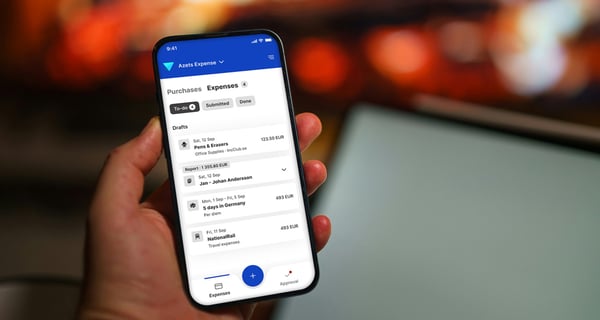

We stand on the threshold of a digital revolution: one in which sectors as diverse as retail and financial services are adapting – or dying.
This is true for businesses operating across both B2B (business-to-business) and B2C (business-to-consumer) markets. But while it may appear that it’s ‘everyone for themselves’ right now, many companies are finding that collaboration is the best way forward.
More and more businesses are raising their innovation games by forging partnerships with other companies able to provide the expertise that they would otherwise need to build from scratch.
This is precisely why white label partnerships are flourishing right now – particularly in fintech, which is an increasingly complex area. Let’s take a closer look at the nature of white label partnerships, how they work, and how your business could benefit.
Why White Label?
The current business climate, like many things right now, is shifting rapid – at a rate of unprecedented change.
The fact is many businesses are struggling to keep pace with customer demands. They need to provide added customer value to stay competitive – offering more efficient, user-friendly, and cost-effective ways to manage their digital operations. They also need to actively maintain an innovation strategy – and be seen to be doing so.
This is where white label solutions can add a tremendous amount of value – for businesses of all shapes and sizes.
However, white label solutions are nothing new. Consider how supermarket chains, for example, have been offering ‘own brand’ products for years – which are essentially big brand goods with a different label.
In fact, entire businesses can be built around robust white label solutions – with everything from water bottles to essential oils. Services like Sourcify can help brand owners connect with manufacturers.
Partnering With A White Label SaaS Provider
While this is all well and good when it comes to selling physical products, over the last few years, there’s been a significant increase in software vendors selling their solutions to other businesses on a white label basis.
Transposed to a technology environment, the concept of a white label product changes. While the transactional route to market is just as simple (a software company builds a solution and manages to scale by selling the Software-as-a-Service to other companies, who brand and market it themselves) given the nature of the commitment, the solution provider and the brand owner need to work a lot more closely together – forming a much closer partnership than would be the case where consumer goods are concerned.
For example, take corporate card companies and accounting/payroll service providers – which both operate within financial services but have a specific remit, which relies on them scaling the number of customers they have in order to remain profitable.
However, companies like these could also consider expanding their number of services – and offering a white label expense management platform (like ours!). Instead of just growing business through new user acquisition, they have an opportunity to up-sell added-value services to existing customers – which is a much easier proposition.
In addition, a white label solution gives companies and entrepreneurs without technical expertise, but with great business acumen, a way to offer their customers a fully functioning, fully supported, and completely customisable solution – straight off the bat.
This not only enables them to stay focused on their core business and its growth, it also helps to create happy and trusting end customers from the get-go. And because all of the front- and back-end aspects of the platform – as well as the user experience – have been created, tested, and adapted by the white label provider, the solution already has a track record of success.
Reasons To Choose A White Label SaaS Provider
- Allows you to offer a value-added service to complement existing solution
- Enables you to provide a new service immediately – without losing focus on your core business by spending time and resources building a solution in-house
- Access to a fully functioning, fully supported, completely customisable platform
- All eyes remain on your brand and/or existing service
- Optimised user experience
- Track record of solution success
- Immediate revenue and growth opportunities
- Allows you to focus on other areas of running your business
White Label Success Stories
The big question is, how well does this kind of white label SaaS operation work? Stacks of companies have seen the light. In fact, many of the new fintech challenger banks that have materialised in the past few years — such as Revolut, N26, Chime, and Monzo – use white label (which is often referred to by some as ‘private label’) solutions.
One recent success story has been the partnership between Dutch bank ABN Amro and open banking platform provider, Tink – whose white label platform formed the basis of ABN Amro’s new banking app: Grip. Once Grip’s key feature is the ability for users to monitor and access up to five different bank accounts at once – meaning that non-ABN Amro customers could essentially use its technology, and still get a lot of value from it.
Results-wise, so far, so good: 75% of new Grip customers said they’d recommend the app to a friend, while 50% gave the bank a high overall rating after using the app.
But it’s not just banks that can benefit from white label fintech services. Accounting and payroll businesses (think Grant Thornton, PwC, BDO) and financial software providers (like Visma, Sage, and Quickbooks) have every opportunity to scale out their solutions too. That is, as long as they find a trusted, knowledgeable, and fully-compliant partner.
Choosing The Right White Label Partner
So what do finance businesses (or any business for that matter) need to be aware of when researching white label fintech partners? There are some key questions they should ask themselves and potential partners before signing any agreements.
For example:
- Does the white label partner provide the solution to an existing problem?
- Do they offer tangible value – the kind that complements your current offer and caters to the needs of your existing and future customer base?
- Is the partner an expert and leader in the field? Who are they currently working with?
- Do they have case studies or references?
- Do they have all of the necessary licenses and certificates needed to operate in the countries and regions your business and its customers are based in?
- Are they GDPR-compliant? How watertight is data security?
- Do they abide by PSD2? Do they have the necessary licenses?
- What about AML (anti-money laundering) and KYC (know your customer) procedures? (depending on what service you’re looking for)
Any white label fintech provider worth their salt will be acutely aware of these issues and should be well-versed in their importance and application. But, where corporate card, accounting and financial services are concerned, it’s always better to be safe than sorry.
The Benefits Of Getting It Right
All things considered, when it comes to gaining a competitive advantage – in any sector or industry – there’s always a tech solution waiting in the wings – one that’s designed to optimise the user experience and create more value for ambitious businesses focused on digital transformation.
However, the vast array of white label providers out there are software specialists – who don’t always have the necessary market knowledge to navigate a sector as complex as finance, accounting, or banking, in the same way that a more established business might.
That’s why it’s critical that in addition to simply sourcing a white label solution, companies look to establish trusted relationships with knowledgeable industry partners when they look to expand their offering. Yes, they need to keep customers happy without losing focus on their core business, but making sure that the company they partner with has a strong track record of successful implementation is just as crucial.
There are many advantages to working with a white label provider. If your business is keen to understand more about how this works with a SaaS platform, or you’re interested in learning more about how our expense management platform could help to differentiate your business, then please get in touch with us.



